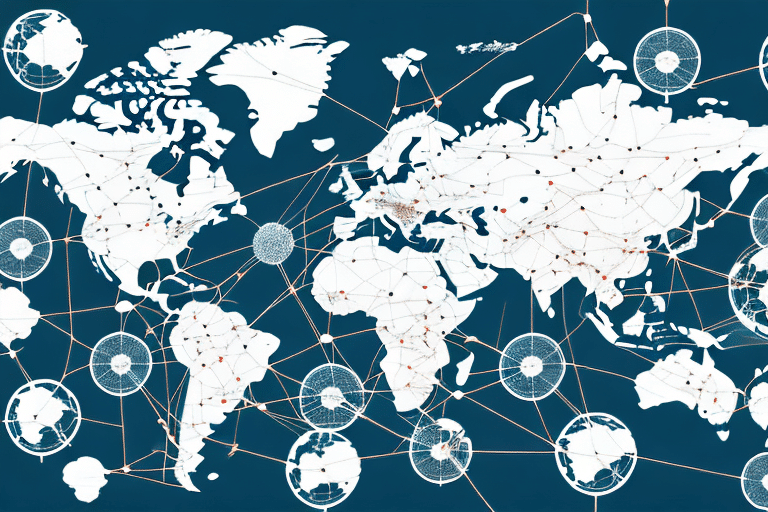Importance of Global Operations
Expanding into the global market is no longer a luxury but a necessity for businesses aiming to remain competitive and relevant. Companies that confine themselves to their domestic markets miss out on significant growth opportunities and risk being overshadowed by competitors with a global presence. By entering new markets, businesses can diversify their customer base, mitigate risks associated with market fluctuations, and access new talent pools and resources. A global footprint also enhances a company's reputation and credibility, strengthening its standing in the international economy.
Furthermore, global operations enable businesses to leverage economies of scale, leading to cost savings and increased profitability. Operating in multiple countries allows companies to negotiate better deals with suppliers, reduce transportation costs, and streamline operations. Access to new technologies and innovations from different markets can also drive product and service improvements, ensuring that businesses stay at the forefront of industry developments.
According to the World Economic Forum, companies with a global presence are 30% more likely to outperform their local competitors, highlighting the critical role of global operations in achieving sustainable growth.
Cultural and Communication Strategies
Understanding Cultural Nuances
Cultural differences significantly impact business success in the global market. Companies must comprehend the cultural norms and values of their target markets to tailor their products and services accordingly. This involves adapting user interfaces, marketing materials, and customer support to align with local languages and cultural preferences. A deep understanding of cultural nuances fosters trust with customers and enhances the overall customer experience, leading to increased loyalty and retention.
For example, in some cultures, gift-giving is integral to building business relationships, while in others, certain colors or symbols may carry specific connotations that should be considered in branding and marketing efforts.
Overcoming Language Barriers
Language barriers present a significant challenge for businesses expanding globally. To address this, companies should develop a comprehensive communication strategy that includes hiring multilingual employees, partnering with localization experts, and utilizing advanced translation and interpretation technologies. Effective communication is essential for building strong relationships with international customers, suppliers, partners, and employees.
Investing in language training for employees and understanding different customs and social norms can further enhance communication effectiveness, reducing misunderstandings and strengthening international partnerships.
Supply Chain and Logistics Management
Building a Robust Global Supply Chain
A reliable supply chain is crucial for businesses operating in the global market. Establishing relationships with suppliers, manufacturers, distributors, and logistics providers across different countries requires strategic sourcing, procurement, manufacturing, and transportation planning. Balancing cost-effectiveness, quality, and sustainability is key to maintaining an efficient global supply chain.
According to a report by McKinsey & Company, companies with optimized global supply chains experience up to a 20% increase in operational efficiency and a 15% reduction in costs.
Risk Management in the Supply Chain
Managing risks such as geopolitical instability, natural disasters, and unforeseen events is essential for maintaining supply chain continuity. Developing contingency plans, diversifying suppliers and manufacturing locations, and investing in technology and infrastructure can mitigate these risks. Building strong relationships with local partners and stakeholders also enhances supply chain resilience.
Leveraging Technology
Adopting Advanced Technologies
Technological advancements have transformed global business operations. Implementing tools like cloud computing, data analytics, artificial intelligence (AI), and automation can streamline processes, reduce costs, and boost efficiency. Cloud-based collaboration platforms facilitate seamless teamwork across different locations, while data analytics provide actionable insights for strategic decision-making.
AI and automation enhance customer experience through chatbots and virtual assistants, offering 24/7 support and personalized interactions. Additionally, digital marketing tools and social media platforms expand reach and engagement with a global audience.
Ensuring Cybersecurity
With increased reliance on technology, cybersecurity becomes paramount. Companies must implement robust security measures to protect their data and systems from cyber threats. This includes investing in secure infrastructure, regularly updating security protocols, and training employees on best practices for data protection.
Financial Management in a Global Context
Managing Currency Exchange
Operating in multiple countries introduces complexities related to currency exchange rates. Companies must develop strategies to manage currency risks, such as hedging and utilizing financial instruments to mitigate the impact of exchange rate fluctuations. Continuous monitoring and analysis of market trends are essential for making informed financial decisions.
According to the International Monetary Fund, effective currency risk management can improve a company’s financial stability and profitability by up to 10%.
Complying with Local Tax Regulations
Compliance with local tax laws and regulations is critical to avoid financial penalties and reputational damage. Companies must work with local tax experts to navigate the complexities of tax planning, reporting, and compliance in each operating country. Understanding and adhering to varying tax codes ensures legal compliance and financial accuracy.
Branding and Marketing Strategies
Creating a Global Brand Identity
A strong brand identity is vital for global success. Businesses must create a unique and compelling brand that resonates across different regions while maintaining consistency. This involves developing a brand strategy that reflects the company's values, mission, and culture, designing a distinctive visual identity, and ensuring cohesive communication across all channels.
Consistency in branding builds recognition and trust, enabling customers worldwide to associate the brand with quality and reliability.
Developing a Comprehensive Marketing Strategy
Effective global marketing requires a tailored approach that considers the unique needs and preferences of each target market. Conducting thorough market research, identifying the most effective marketing channels, customizing messaging and content for local audiences, and measuring the impact of marketing efforts are essential components of a successful global marketing strategy.
Leveraging digital marketing tools and social media platforms allows businesses to reach a wider audience and engage with customers in a more personalized manner.
Team and Talent Management
Recruiting a Diverse Workforce
A diverse and inclusive team is crucial for global business success. Companies should prioritize recruiting talent that represents various cultures, perspectives, and experiences. A diverse workforce fosters innovation, enhances problem-solving, and improves the ability to connect with customers from different backgrounds.
Managing and Retaining Global Talent
Once a diverse team is in place, effective management and retention strategies are essential. Creating a welcoming workplace culture, providing opportunities for professional growth and development, and offering competitive compensation and benefits help retain top talent. Additionally, implementing cross-cultural training and fostering open communication can enhance team cohesion and productivity.
Legal and Regulatory Compliance
Navigating International Laws and Regulations
Operating globally entails adhering to a myriad of local laws, regulations, and standards. Companies must understand the legal and regulatory landscape in each country of operation and ensure compliance with both local and international laws. This includes data protection regulations, trade laws, employment laws, and industry-specific standards.
Collaborating with legal experts and regulatory bodies can help businesses navigate these complexities and maintain compliance, thereby avoiding legal issues and safeguarding their reputation.
Establishing Compliance Practices
Developing robust compliance practices aligned with the company's values and mission is essential. This involves regular audits, employee training on compliance matters, and implementing systems to monitor and enforce compliance standards across all operations.
Measuring Success and Continuous Improvement
Defining Clear Goals and Metrics
To optimize global operations, companies must establish clear goals and metrics for each region and market. Key performance indicators (KPIs) should be defined to measure performance consistently across different channels and touchpoints. This enables businesses to track progress, identify areas for improvement, and make data-driven decisions.
Utilizing data analytics tools can provide deeper insights into market trends, customer behavior, and operational efficiency, facilitating informed strategic adjustments.
Adapting Strategies for Continuous Improvement
The global market is dynamic, with constantly changing conditions and emerging trends. Businesses must regularly review and adapt their strategies to address evolving market demands, seize new opportunities, and overcome challenges. Embracing a culture of continuous improvement ensures long-term sustainability and success.
Addressing Challenges and Risks
Managing Geopolitical and Economic Risks
Global operations expose businesses to geopolitical and economic uncertainties, such as political instability, trade tensions, and economic downturns. Developing a comprehensive risk management plan that considers different scenarios and outcomes is essential for mitigating these risks. Strategies may include diversifying markets, building strong local partnerships, and maintaining financial flexibility.
Proactively addressing these risks helps ensure business continuity and resilience in the face of unforeseen challenges.
Mitigating Cybersecurity Threats
As businesses expand globally, the threat of cyberattacks increases. Implementing robust cybersecurity measures, such as advanced encryption, regular security audits, and employee training, is crucial for protecting sensitive data and maintaining trust with stakeholders.
Learning from Success Stories
Case Studies of Global Leaders
Examining case studies of companies that have successfully optimized their global operations provides valuable insights into best practices and effective strategies. Companies like Apple, Toyota, and Coca-Cola have established strong global presences by adapting to local cultures, leveraging digital technology, and maintaining robust supply chains.
These case studies highlight the importance of cultural adaptation, technological innovation, and strategic supply chain management in achieving global success.
Expert Insights and Best Practices
Seeking insights from industry leaders and experts can further enhance a company's global operations strategy. Participating in industry conferences, joining professional networks, and engaging with online communities provide opportunities to learn about emerging trends, share experiences, and adopt best practices. Staying informed and connected with industry thought leaders helps businesses stay ahead of the curve and continuously refine their global strategies.
Conclusion
Optimizing operations for the global market is essential for business success and sustainability in today's interconnected world. By understanding cultural nuances, overcoming language barriers, building a resilient global supply chain, leveraging advanced technology, managing finances effectively, creating a strong brand identity, developing comprehensive marketing strategies, fostering a diverse and talented team, ensuring legal compliance, measuring success, and addressing challenges proactively, businesses can establish a robust global presence and achieve their long-term objectives.




















